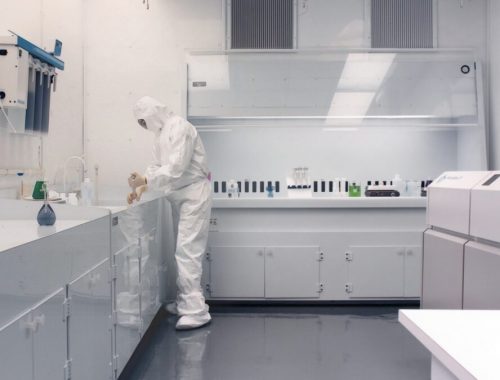Catchy Title: Keeping Your Fowl Friends Healthy: Detecting and Preventing Common Chicken Diseases
Introduction
Chickens are not just ordinary farm animals; they have become beloved companions and providers of food for many people worldwide. Whether you raise them professionally or simply enjoy them as pets, ensuring the health and well-being of your flock should be a top priority. One crucial aspect of maintaining a healthy chicken population is the early detection and prevention of common diseases. In this article, we will explore various diseases that can affect chickens and discuss effective strategies to keep your feathered friends in peak condition.
Body
1. Recognizing the Signs of Common Chicken Diseases
To effectively prevent the spread of diseases within your flock, it is essential to be able to identify the signs and symptoms of common chicken diseases. Some of the most prevalent diseases include:
-
Avian Influenza (AI): Look for sudden drops in egg production, respiratory distress, coughing, diarrhea, and depression among your chickens. AI is highly contagious and can be transmitted to humans as well.
-
Newcastle Disease: Pay attention to respiratory distress, greenish diarrhea, nervous system disorders, and sudden death. Newcastle disease is highly contagious and can cause devastating epidemics if left unchecked.
-
Marek’s Disease: Watch for paralysis, weight loss, ocular changes, and tumors. Younger chickens are particularly susceptible to this contagious and often deadly disease.
-
Infectious Bronchitis (IB): Observe respiratory distress, sneezing, coughing, eye discharge, decreased egg production, and weak shells. IB can be transmitted through aerosols and direct contact.
-
Coccidiosis: Keep an eye out for bloody droppings, lethargy, drooping wings, and poor appetite. This highly prevalent intestinal disease affects younger chickens and can be fatal if not treated promptly.
2. Preventing Disease Outbreaks
Prevention is key when it comes to chicken diseases. Here are some measures you can take to minimize the risk of illnesses among your flock:
-
Biosecurity Measures: Implement strict biosecurity practices, such as limiting access to your chicken coop, disinfecting equipment and footwear, and isolating new birds for a quarantine period.
-
Vaccination: Consult with a poultry veterinarian to develop a vaccination schedule suitable for your flock. Vaccines exist for several common diseases and can provide valuable protection against outbreaks.
-
Hygiene Maintenance: Keep your coop clean and dry, regularly remove droppings, and maintain proper ventilation. Ensure a regular supply of clean drinking water and provide a balanced diet to improve your chickens’ resilience to diseases.
-
Parasite Control: Regularly inspect your chickens for external parasites (e.g., mites and lice) and internal parasites (e.g., worms). Proper deworming and treatment can prevent various diseases and health complications.
3. Seeking Veterinary Advice
If you suspect one of your chickens is unwell or displaying symptoms of a disease, it is crucial to seek veterinary assistance promptly. A poultry veterinarian can provide accurate diagnosis, prescribe appropriate treatments, and offer guidance on disease prevention and flock management.
Conclusion
Being able to detect and prevent common chicken diseases is essential for the overall well-being of your flock. By recognizing the signs of diseases early on and implementing preventive measures, you can reduce the risk of outbreaks and protect your feathered friends. Remember, good biosecurity, appropriate vaccinations, hygiene maintenance, and regular veterinary care are the keys to maintaining a healthy flock of chickens.
FAQ Section
1. Can chicken diseases be transmitted to humans?
Yes, certain chicken diseases, such as Avian Influenza (AI), can be transmitted to humans. It is essential to practice safe handling and proper hygiene, such as washing hands thoroughly after handling chickens or their products.
2. Can I vaccinate my chickens against all common diseases?
While vaccines are available for some common chicken diseases, they may not cover all potential illnesses. Consult with a poultry veterinarian to determine the most suitable vaccines for your flock based on their age, location, and disease prevalence.
3. How often should I inspect my chickens for parasites?
Regular inspection for parasites should be part of your routine. Aim to inspect chickens at least once a week, checking for signs of external parasites like lice or mites, and consult a veterinarian for appropriate parasite control measures if needed.
4. Can I use natural remedies to treat chicken diseases?
While some natural remedies may offer mild relief or support, it is crucial to consult with a veterinarian for proper diagnosis and treatment of chicken diseases. Natural remedies should not replace veterinary guidance.
5. Are there any legal obligations regarding reporting chicken diseases?
In many countries, reporting certain chicken diseases to relevant authorities is mandatory. Familiarize yourself with local regulations and reporting requirements to ensure compliance and aid in disease control efforts.
Disclaimer: The content provided here does not replace professional veterinary advice. Consult a qualified poultry veterinarian for accurate diagnosis and personalized guidance for your flock.
You May Also Like

How Biosafety Cabinet Helps
August 3, 2022
Unlocking Serenity: The Motivational Magic of Reading
May 22, 2023
